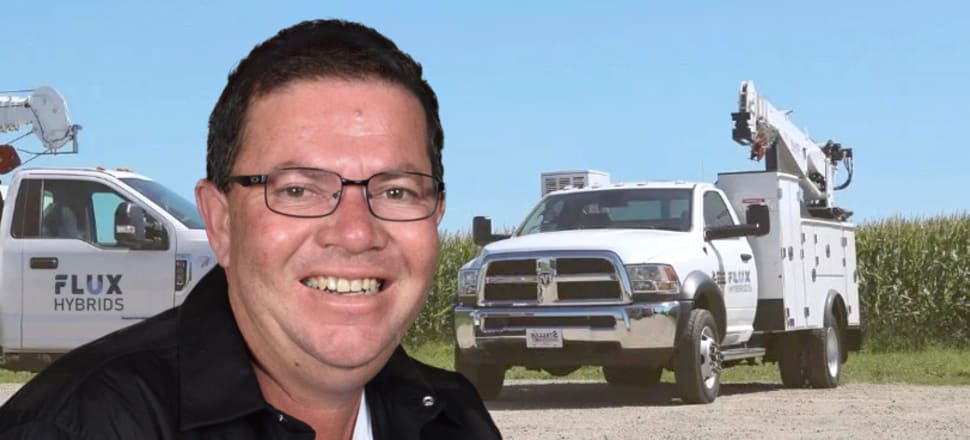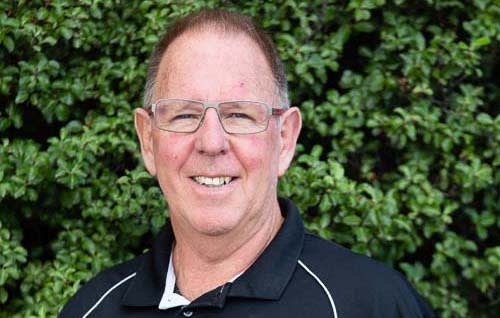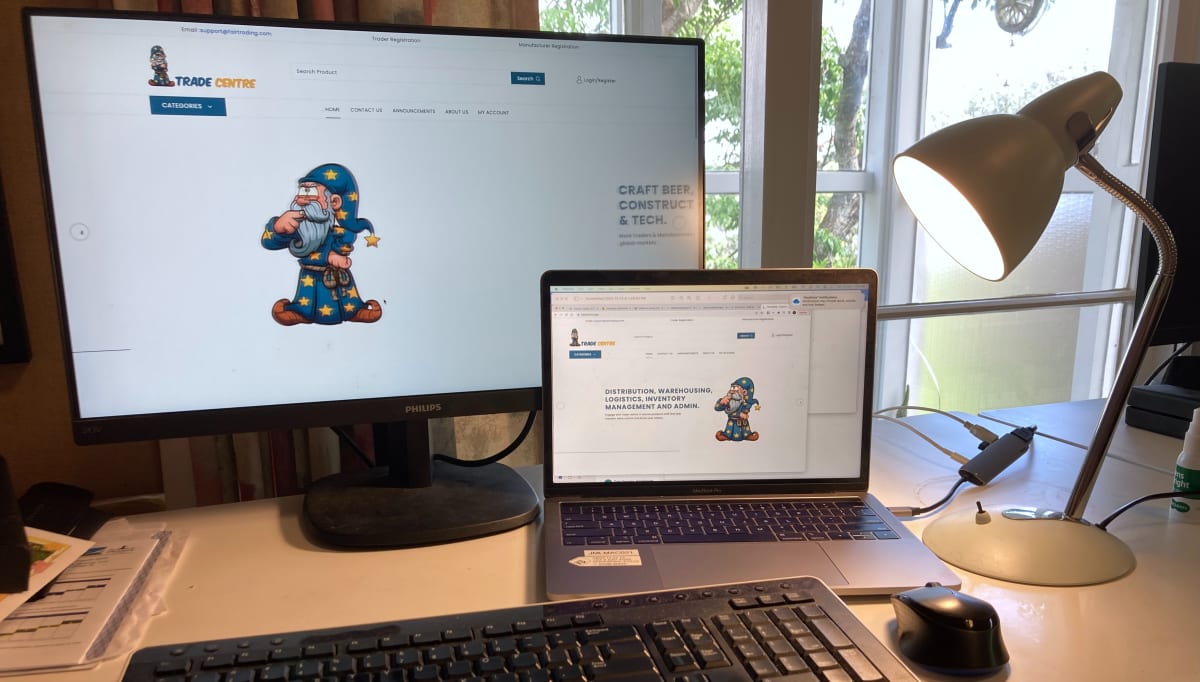
Fool me three times? A disgraced businessman whose targets included mum-and-dad investors, a Hollywood producer, a TV news anchor, a city mayor and even the Minister of Finance, is now trying for third time lucky – and asks to be given a chance to turn over a new leaf
It was just last month that Evan Price's business in New Zealand was finally liquidated; there was no money left to pay the $600,000-plus owed to his employees, landlord and dozens of investors.
Yet even as the liquidator was giving notice to remove Latitude Dynamix Holdings Ltd from the Companies Register, Newsroom tracked down Price in Nelson, where he is embarking on a new venture – to take on the likes of Aliexpress and Amazon with a NZ-based online sales platform.
In a high-stakes video call from Nelson last week, he pitched the opportunity to the chief executive of US company Flux Hybrids, which converts Ford Rangers and other 4x4s to hybrid.
Newsroom's investigation of the Latitude Dynamix collapse was a finalist for best business reporting in the Voyager Media Awards. Read more: * Big names and locations caught up in film company collapse * Hollywood producer's legal warning to failed NZ businessman * Staffer blows whistle on blowhard America's Cup wind-power plan * Evan Price's farcical promise to fuel data revolution
At his side was local trucking firm owner Dale Greaves, who was impressed at being connected to a high-flying US tech exporter. On the screen from Raleigh, North Carolina, was Micah Ulrich who couldn't believe his luck at being connected to a potential big client on the other side of the Pacific. "It seemed too good to be true," says Ulrich.
And there, in the middle, was Evan Price – using his well-practised strategy of wowing potential clients with his connections.
Last year, Newsroom revealed how the liquidation of Latitude Dynamix Holdings brought together everyone from a former Tauranga mayor Tenby Powell and broadcaster Peter Williams, to the family of Taika Waititi. The liquidator reported Latitude owed more than $564,000 to creditors, big and small. They invested in bold dreams like a big budget Warner Bros Pokémon movie production in the Bay of Plenty, a 220-hectare Pokémon family fun park, a data hub to break the telcos' retail headlock on tech exporters, and a winter golf tournament at Wairakei.
But that was just the tip of the iceberg: Newsroom has spoken with many more staff and customers who didn't even bother lodging claims with liquidator Simon Dalton, certain there was no chance they'd see their money again.
US TV producer Cassandra Cooper has told of her shock at discovering she is named as a business partner, and at undertakings given in her name in New Zealand. Talkback host Peter Williams, too, has told how Price tried to persuade him to put in his money – then used his name to woo other investors.
Three preferential creditors lodged proof of $38,189 in debts, and six unsecured creditors have provided evidence of another $564,440 in debts. Newsroom has spoken to his former staff Ellie Stone, Varun Kumar, Derek Botha, Johan Kok and Amir Yussof – most have decided it's not worth reliving the pain by lodging claims.
"He is just chopping and changing his so-called businesses and liquidating. Never work with him, because he will just screw you over." – Vicki Callaghan, Waihau Bay Store
That's the case for many more creditors – many have told their stories; one couple say they've lost hundreds of thousands of dollars in retirement savings. It seems the real debts left behind by the liquidation of Evan Gary Price and partner Leanne Margaret Townson's companies would total well over $1 million.
Vicki Callaghan and her partner John Waititi together own the Waihau Bay store made famous by cousin Taika Waititi in the movie Boy. It was they, Ellie Stone and Newsroom who painstakingly stitched together the contacts of many of those who had lost money.
Callaghan and Waititi invested $5,175 in Price's proposal to build Waihau Bay its own streaming TV network. They planned to give one channel to each local retail and tourism business, one to the local police, one to the coastguard ... but they never saw their money again. Nor do they expect to.

Price has previously told Newsroom he'll work to repay all the money he owes; now he's equivocating – and certainly, Callaghan doesn't think she'll see a cent of their $5,000. "I'm not holding my breath because I'd die waiting."
She warns others against investing their money with Price, who's still listed on the Companies Register as living in Tauranga. "Don't go anywhere near him," she says.
"He is just chopping and changing his so-called businesses and liquidating. Never work with him, because he will just screw you over."
Callaghan's warning is prompted by the discovery that, after a year of headlines in which he kept his head down, Price has resurfaced in Nelson – seeking customers for a new business.
Via a US-based internet registry that protects the identity of the owner of the internet domain, he has purchased the domain tradecentre.app and is pitching it to the construction sector, in particular.
Newsroom called and spoke with him. He confirms he is the owner of tradecentre.app, and says he already has manufacturers of power inverter and mine dredging equipment, marketing their products through the site. Next year he'll being marketing structural steel and other non-structural building products.
Even though his businesses Latitude Dynamix and Latitude Dynamix Holdings have been liquidated, Price is still allowed to keep operating in business. He's not a banned director, he's not been personally bankrupted, and the liquidator was unable to find finance from the disgruntled creditors to take him to court. None wanted to throw good money after bad.
Throughout it all, Price has continued to maintain that he just got unlucky – twice.
In Australia, his internet companies Zennet International and Fibre Waves Sunshine Coast were both liquidated in 2015, owing money to creditors. Price blamed it on severely underestimating the cash flow requirements, according to trade media site CRN Australia.
"I'm not an electric car person, believe you me, I'm a petrolhead. But in business you've got to be a little bit mindful of the future and I said, well, maybe hybrids is the way it is." – Dale Greaves, Star Trucks
In New Zealand, he says, the problem was the border closures during the pandemic, which stopped him bringing in the staff he needed. With those advance personnel, he says, he and Cooper could have produced the three Pokémon scripts she had optioned from Warner Bros.
He would have employed 300 people on the movies, more on the theme park near Tauranga, more producing renewable electricity from novel wind tree technology with which he had promised to power the movie set and the theme park and the America's Cup Village. Instead, his companies were again forced into liquidation.
"I just wanted a fresh start," Price says now. "So I built a platform, a website that allows people to buy and sell. If somebody wants to buy something off that platform, they pay the provider directly. It's to hopefully improve the supply chain."
Subscribers pay a discounted commission of 7 percent, instead of 15 percent: "We're trying to encourage bulk buying."
He is asking for another chance.
And it's a chance that Micah Ulrich, in North Carolina, might inadvertently have given him – because Price never disclosed his business history.
When Price approached him this month, wanting to sell his hybrid conversion technology in New Zealand, Ulrich was initially enthusiastic.
"Evan reached out about basically setting up distribution through platform warehousing website operation that he had," Ulrich says. "He was claiming we could get up to 25,000 conversions a year in Australia, New Zealand ad the Pacific Islands, on Ford Rangers, which are very popular there. "
Ulrich got on the video call last week to discuss plans – and Price zoomed in with another Nelson businessman, truck sales, rentals and maintenance company owner Dale Greaves.

"Dale was very interested in being set up as an agent to install out system – and this is currently what our business model is. We've developed a system, but for implementation we go to mechanics who already exist and train them to install the system. Because for us, it's easy on labour and distribution. And for them, they're already trained and have the equipment."
But before committing any money, Ulrich began doing due diligence on Price – and came across the Newsroom articles. "I was concerned it was too good to be true. It usually means it is. And I found your articles – otherwise, there would have been nothing stopping me. I appreciate that a lot."
Price wanted Star Trucks to pay Flux Hybrid for training; Star's mechanics would then install the Flux engine technology on utes in New Zealand. Price would clip the ticket (7 to 15 percent) when the hybrid tech was marketed through tradecentre.app.
Ulrich is anxious to warn Greaves, as well. "It's a rough time for startups everywhere," he says. "And the last thing you want is to give up your hard-raised capital to someone who can sell really well. And I don't really want someone else to get taken over, with my name involved."
"There's two sides to every story. And I've done my best to do this without investors. People aren't investing in me. Basically, they're buying a service." – Evan Price, tradecentre.app
Newsroom called Greaves. He'd previously been importer and distributor for Western Star Trucks and Mitsubishi, with branches in Nelson and Tauranga – but now he runs a smaller, independent five-person operation, leasing just a dozen of his own trucks plus whatever he has on the secondhand sales lot.
"I have been a little bit nervous about Evan," Greaves says. "We've talked about him here at work – a few things just didn't add up.
"He approached me about buying or leasing some trucks to cart freight and that's when the whole meeting started off from. He was telling me all about this marketing site he's got, that was going to be the state of the art. I thought, geez, he's either onto a good thing or it's just a pipe dream.
"I don't know enough about that. You're talking about Amazon and all the other Googles of the world that have made their fortune by back-dooring retailers – maybe it does work, I don't know.
"He's been very plausible, coming in here. And two hours later you walk out, thinking, who is this guy? It's like he's trying to take on the world with no resources, and I just couldn't see how. You've got to crawl before you walk, and walk before you run.
"He really wanted to pick my brains on the distribution. I said, you really want to talk to the likes of Owens or Mainfreight, some of those that have already gotten distributed to the network to try to start off. Because you need people with huge capital investment to do that.
"He just seemed to think he had the answers for all that. I handled it with kid gloves, thinking it could be a really, really good opportunity. But I don't know how Evan's managed to do this, all the orders he's saying he's achieved.
"Every time I talk to him, he reckons he's been up all night and he secured this contract, secured that contract. But all the names and companies, he obviously knows enough about computers that it absolutely sounds plausible.
"I've been talking to a lot of people that had to go into liquidation. And you know, they went through a similar thing. They had to revisit their business models as well. If the pandemic hadn't happened, we would have been all right." – Evan Price
"He told me about this company retrofitting electric vehicles and I pricked my ears up and said, I think there's an opportunity there for someone in New Zealand. Nobody, to my knowledge, has started repowering modern vehicles or classic vehicles with electric things like they do in Britain.
"I'm not an electric car person, believe you me, I'm a petrolhead. But in business you've got to be a little bit mindful of the future and I said, well, maybe hybrids is the way it is."
Price says he's mainly focused on building supplies – he says people are importing supplied off overseas websites, then discovering it doesn't comply with building codes in different regions.
"I've created a relationship, or am creating, a relationship with manufacturers for building supplies. So they'll go on the platform for free," he says. "And then that gives the New Zealand industry a chance to do their own due diligence – to provide the code that it has to meet, whether it's electrical or material. And basically, we'll do the best that we can to make sure that the supplier or manufacturer is going to make to that code."

Newsroom put it to Price that many building supplies ought to be certified. "That's right. And a lot of them aren't. That's where people are getting caught out. So we ask for that certification.
"So like, if you bought Gyprock for your home, you might get away with it. But what if the council comes round to do the final checklist? It's got to have a stamp on it. If it hasn't got a stamp on it, you might be in a bit of difficulty."
Price says he built the tradecentre.app site himself, so he's not in anybody's debt. The only products visible are power inverters. In the absence of other products, the site is illustrated with a stock library cartoon wizard, drawn by Mexican illustrator Memo Angeles.
The site is branded "fair trading". But the terms and conditions page, the customer service page and the privacy policy are all populated with gobbledygook Lorem Ipsum holding text.
According to Price, the wizard is a tongue-in-cheek reference to the challenges he faced through the pandemic, and how in the midst of the adversity he came up with a bright idea for a new business: the producer or manufacturer being paid up front.
"A sheep station, for example, would get paid before they start shearing," he explains. So if they've made an agreement to sell overseas through the platform, they're paid by the buyer before their shearing season.
"And for the building industry, the builders want to make it more sustainable for themselves. They want to buy early to secure the materials, and to get a bit of a discount for paying in advance.
"So this idea has got traction – I hope it doesn't get hammered in the media before it even gets off the ground. There's two sides to every story. And I've done my best to do this without investors. People aren't investing in me. Basically, they're buying a service.
“So people give Amazon a go, right? They give them a hard time, but at the end of the day, Amazon is selling direct from a retailer to the consumer,” he says. “Where they’re saving money and where they’re able to afford those discounts to the consumer is by automating. And on a very big scale, it’s the same for what Costco’s achieved achieved. And those are a subscription model.
“This will never be an Amazon. This will never be a Costco. This is just a small platform that is gonna cater for a few industries.
"I've been talking to a lot of people that had to go into liquidation. And you know, they went through a similar thing. They had to revisit their business models as well. If the pandemic hadn't happened, we would have been all right. With the pandemic and not been able to get clients into a country, and supply chains getting locked off so you can't buy anything, that made it very hard. And that's why I thought about this as a different platform."
Important note: Evan Price's description of the Building Code and product certification should not be relied upon. There are product assurance options for showing how your product complies with the Building Code, and whether it needs certification. These can be found at MBIE's Building Performance website.







